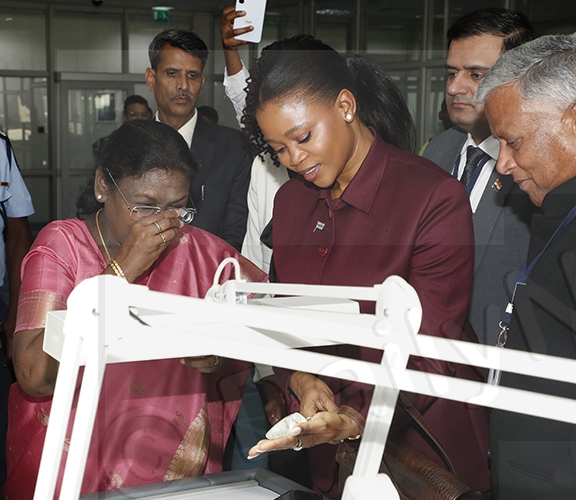Horticulture grapples with challenges
09 Sep 2020
The horticulture industry is still struggling to cope with demands of the market due to several challenges.
In an interview, chief horticultural officer in the department of crop production, Ms Kgotso Madisa said, as a result, they spent more on importation of horticultural products.
Challenges, she said, included climate change, high inputs costs such as fertilisers, pesticides, seeds as well as lack of collection and distribution centres for farmers to sell their produce.
According to the Ministry of Agricultural Development and Food Security, the annual national demand of horticultural products was estimated at 112 000 metric tonnes. In the years 2019 - 2020, the country produced 58 715.46 metric tonnes of vegetables and fruits, leading to more imports to augment the local demand.
Records from Statistics Botswana showed that under the current year, between January and May 2020, 8 751.2 tonnes were imported at more than P69 million (P69 520 569.53) while in 2017, the country imported 72 758.5 tonnes at cost of more than P578 million (P578 505 458.72). In 2018 the country imported 79 426.8 tonnes horticultural produce valued at more than P632 million (P632 680 093.56). This was followed by 80 295.1 tonnes in 2019 imported at a cost of more than P656 million (P656 645 795.79).
However, Ms Madisa indicated that government had always assisted the sector through in-service training, provision of inputs subsidy as well as regulating imports by closing borders when local production was sufficient to feed the country.
She said the sector had the potential to boost the economy, adding that currently there were about 4 900 labourers employed by the sector.
She highlighted that was capacity to employ more people if value addition was intensified in the sector.
Furthermore, Ms Madisa advised that there were several opportunities in the horticulture value chain which included seed production, seedling production, inputs production such as manures, compost, fertilisers, irrigation material, net shades, greenhouses hydroponics equipment, pesticides, packaging material and agro-processing which were not taken advantage of.
Ms Madisa said most of the local horticulture production was on vegetables, hence an opportunity for the production of fruit tree seedlings, fruit production, mushrooms, herbs and spices and cut flower production. She noted that all of these were promoted through the ISPAAD horticulture production.
For his part chairperson of the management board of Horticultural Marketing Cooperative Society Limited (HORTCOMS), Mr Boikaego Phole said for the sector to grow, the government in collaboration with farmers and other stakeholders need to create an enabling environment as a matter of urgency.
He said this could be attained by developing a horticulture development policy, establishing agriculture Act, a semi-autonomous body (Horticulture Development and Marketing Authority (HDMA) and horticulture levy to fund activities aimed at developing horticulture. Where possible, he said serviced land could be availed in areas where there is enough water around dams like Lotsane, Thune and Dikgathong.
Mr Phole said challenges such as lack of skilled manpower, lack of inputs locally, an unwillingness by farmers and stakeholders to work together, lack of appropriate farm equipment, lack of adherence to quality standards and lack of proper infrastructure in farms as a drawback to their ply.
He also said Botswana was an open market system hence there was no institutionalised price regulation, which disadvantaged farmers because prices were set by retailers.
He indicated that HORTCOMS was working tirelessly for horticulture products to be distributed to the market from central places, which would make it easy for the society to regulate the prices.
Mr Phole advised farmers to improve methods by adopting new technologies that could mitigate the effects of harsh weather conditions and learn from other farmers.
He also urged farmers to learn about new products in the market and market needs, adding that they should join associations and Horticultural Marketing Cooperative Society Limited.
Pertaining to how COVID-19 affected the sector, Mr Phole indicated that it had brought both negative and positive effects.
He said because of lockdowns the industry realised that as opposed to relying on sourcing from South Africa, Botswana needed to be self-reliant on food production. “During this period, Batswana realised the business opportunities under horticulture value chain,” he added.
He indicated that it was now clear that Botswana needed to expediently develop her own capacity in research and development to produce agricultural inputs such as seeds/seedlings, agrochemicals and farm equipment.
“During lockdown it was difficult for farmers to source inputs and equipment from outside the country hence the need to intensify research and development,” he added. Ends
Source : BOPA
Author : Thato Modiakgotla
Location : Gaborone
Event : Interview
Date : 09 Sep 2020





